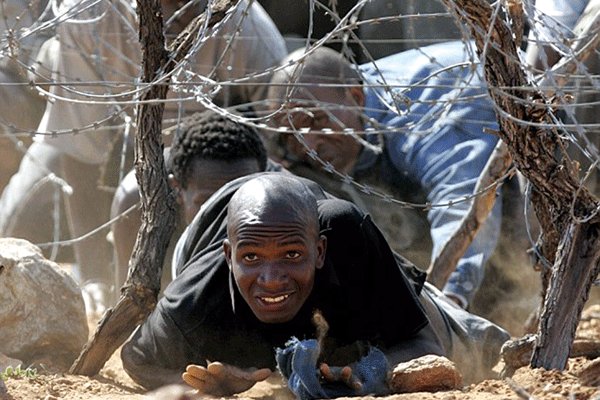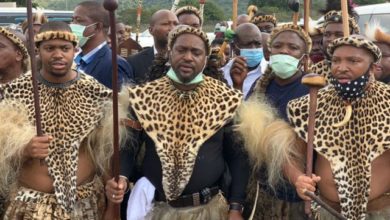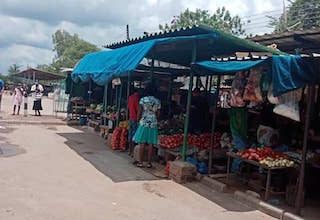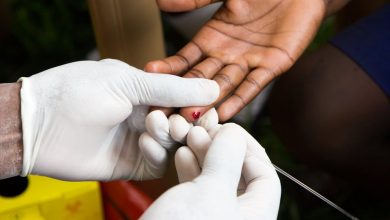SA elections: MK calls for military border control, divides opinion

The political party led by former South African president Jacob Zuma, uMkhonto we Sizwe (MK), is wading into the pre-election debate on immigration, claiming that militarisation of borders is necessary to improve border management.
Political parties competing in the May 29th elections have prominently featured immigration in their platforms. Many blame migrants, particularly those from other African nations like Zimbabwe, for South Africa’s problems.
In its manifesto, MK speaks about reclaiming safety and security in South Africa under Pillar 7 and to reclaim that safety and security, the party says it would “strengthen border control by signing border control to the military.”
Apart from that move, MK said it will implement advanced technological solutions to enhance border surveillance, and revamp the Department of Home affairs through eliminating corruption and updating immigration infrastructure.
The party also intends to enhance the Border Management Authority’s (BMA) effectiveness by capacitating and adequately resourcing the agency, fostering closer collaborations and coordination between the BMA and other relevant government agencies.
MK’s proposal on border control and immigration has divided opinion, with some analysts stating that the party is anti-immigrant and blames migrants for the country’s problems, while others believe while ceding the border to the army sounds extreme, it is expected for a country to protect its territories and make sure illegal migrants do not violate them.
An analyst, Patrick Ndlovu, said it was worrying that a government would want to use soldiers rather than use police who will arrest wrongdoers and take them to court.
He claimed soldiers often use ‘extra-judicial methods meant to eliminate the enemy’ rather than investigate and follow legal procedures.
“In a sense migration is militarised and securitised. This means the migrant is defined as an enemy of the state from the start, and in military terms, enemies are eliminated,” Ndlovu explained.
Ndlovu said politicians and their parties have frequently used migration in South Africa as a scapegoat for their economic mismanagement.
“For decades the South African economy has been mismanaged by successive governments in an effort to appease a population who were ‘supposedly independent but effectively not free,’ in the words of the late Joshua Nkomo,” he explained.
“When eventually the service delivery crumbled, the infrastructure ground to a halt, it’s when the South African population realised that, just like Zimbabweans, they had been taken for a ride by politicians who had amassed personal wealth.”
Ndlovu added: “So immigrants are being blamed by corrupt politicians for the failing economy. MK has jumped on the bandwagon and used the topic to canvass for votes. Some in the South African military are as corrupt as some of the civil service members of South Africa. They (soldiers) sit by the gate at Beitbridge and accept bribes in the open.”
However, Dr Vusumuzi Sibanda, leader of the African Diaspora Global Network, said the use of the army is something not new, as ordinarily the borders are patrolled by the soldiers,
“The army is extreme but Zimbabwe is doing it and already the South African National Defence Force (SANDF) is there anyways,” Dr Sibanda said, adding he was unsure if MK’s manifesto meant they would put the army as immigration officials.
“If they do that, it would obviously be an anomaly, it cannot be done in terms of the law.”
Dr Sibanda stated it must be specified whether the use of the army at the borders would be a deployment rather than merely ‘normal’ patrol border activity.
“Deploying the military has got to be done in terms of the precedent – but for as long as the president is able to do that then it can be so done but other than that it may be just the ordinary patrols that we see now where the army patrols or is deployed along that area, so this is not something new at all,” he said.
Chairperson of the Zimbabwean Community in South Africa, Nicholas Ngqabutho Mabhena, concurred that deploying the army was not different from what the ruling African National Congress (ANC) has put forward.
“This is not different. This manifesto speaks how to strengthen borders and prevent undocumented people from coming into the country so the use of advanced technology strengthening of border management is not different from what the ANC proposes,” Mabhena said.
Mabhena added that what MK was trying to do is to show it can manage borders far much better than the ANC.
“Otherwise this is the same proposal which the ANC is proposing. This does not speak to undocumented migrants that are already inside the country but focus here is on preventing undocumented migrants who normally use unofficial entry points into South Africa. So they seek to strengthen that so it’s not different from what Motsoaledi and the ANC are actually doing,” said the chairperson.






